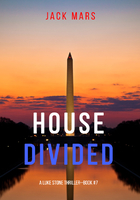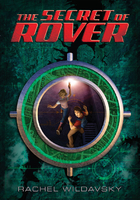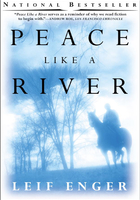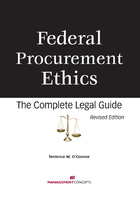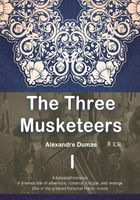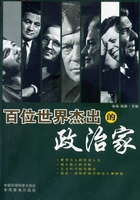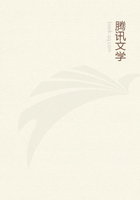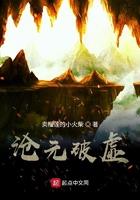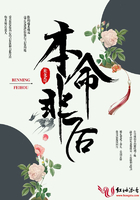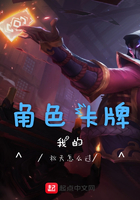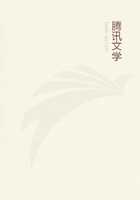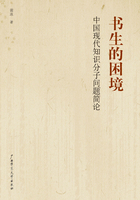Hola Nancy
"The integrity of the upright shall guide them; But the perverseness of the treacherous shall destroy them."
-Proverbs 11:3, The Holy Bible (ASV)
Eugene, Oregon, fall 2008
The morning of October 10 dawned cold and gunmetal gray in Eugene, a college town so accustomed to autumnal gloom that the young man with sleepy blue eyes gave it scarce notice. Nathan Nicholson hiked across an elevated walkway from his drafting class toward the Lane Community College library, which sat in the middle of campus in the aptly named Center Building. Behind him, a thicket of towering evergreens carpeted the coastal mountains, which stretched fifty miles west to the Pacific Ocean, clouds draping their rounded shoulders like tattered shawls.
Nathan wore his hair razor-close on the sides, with a little longer patch on top, a style his barbers back in the Army called high and tight, and which, not by accident, disguised his receding hairline. He moved with an infantryman's gait, chest out, head and shoulders barely rising, stocky legs chewing up ground. But there was a slight hitch in his stride, as if his left leg were stepping over imaginary glass, a parting gift from the parachuting injury that ended his military career. He had turned twenty-four that summer.
The air felt cool on Nathan's face, his strong brow and broad chin, and he could see his breath. The first rains of winter had begun early in the Willamette Valley, where even longtime residents herald the onset of the soggy season with low-grade despair. Soon would come a monotonous series of drizzles, rolling off the Pacific as if by conveyor belt, delivering the valley so many short, gray days that by February, some folks would begin to joke about eating the barrel of the nearest gun.
Nathan was not a native Oregonian, and he sometimes missed the more exciting climates of his boyhood. His dad's foreign assignments sent the Nicholson family to punishing places. Manila, with its blistering humidity and electrical storms you could feel under your feet. Bangkok, often called the hottest city on the planet. Kuala Lumpur, where monsoons deliver a hundred inches of hard rain a year. And Bucharest, with its pipe-bursting winter freezes. He also missed the rotations, traveling from embassy to embassy, uprooting every few years to start fresh someplace new.
Outside the library, Nathan slipped a black-and-gray Alpine backpack off his shoulder and knelt on the cool brick walkway as if to tie his shoe. He hunched over the pack for an instant, letting his eyes casually sweep the commons, panning faces and forms. One intense glance from anyone and he would bail, circling back later for another try. But he saw nothing suspicious.
Nathan unzipped the pack's front compartment and lifted out a small notebook with a blue, marbled cover. He flipped through its pages until he reached a twenty-eight-word notation that began, "Hola Nancy." He studied it for a few moments and climbed to his feet, satisfied he could e-mail the message just as the Russian had dictated the previous winter in Peru.
His gut was tormenting him again. For many months, stabbing pains deep beneath his breastplate had intermittently doubled him over. He was convinced that the stress of the last year had given him stomach ulcers. His meals bunched in his belly like piles of tacks. He'd seen a doctor at the college's health clinic, who told him to drink green tea, carry Pepto-Bismol, and avoid tomato juice. Nathan thought she'd seemed unconcerned, even dismissive of his pains, as if she considered college students exempt from the titanic stresses that produce big-boy ulcers. She had not appeared to comprehend the depth of his anxieties, nor could she. There was no way for her to know that for two years he had traveled the Americas as his father's agent to Russia's foreign spy service, and now feared he might be under surveillance by the Federal Bureau of Investigation.
Inside the library Nathan followed tan-gray industrial carpet past bookshelves topped with busts of famous literary and historic figures. From across the room, the figures of Will Rogers, Benjamin Franklin, and Frederick Douglass were locked in a perpetual stare-off with Ernest Hemingway, Albert Einstein, and Kate Greenaway. Nathan pushed through a doorway into an adjoining classroom that doubled as a computer lab, eyes scanning the room for anyone out of place. He settled in front of one of two dozen Dell monitors spread across rows of white desktops. It had taken him weeks to find this spot, the only computer lab on campus where students weren't required to log in.
Nathan pulled up the Yahoo home page, with its familiar red logo, and tapped in the user name "Jopemurr2" and the password "Florida12." He typed the e-mail from memory, wincing at each word. The sentences looked more ridiculous on the screen than when he jotted them down inside a soundproof room at the Russian Embassy in Lima. His fingers froze for an instant over the keyboard as he listened to the words in his head. They sounded as if someone with clumsy English were speaking a pass-phrase in an old spy movie. Such obvious code. He resisted the urge to revise the words into something approximating authentic human correspondence. The Russian had been specific that he stick to the prescribed text, and Nathan stuck to the script. Yet he couldn't stop himself from waking up the prose with a forest of exclamation marks:
Hola Nancy! It is great to receive your message! I love you too. I hope to see you soon!
The best regards from my brother Eugene!
-Love,
Dick
The Russian had assigned them code names. He called himself "Nancy" and gave Nathan the name "Dick." He conferred the sobriquet "Eugene" on Nathan's father, whose years spying for the Russians had brought them all together.
At precisely 9:58 a.m., Nathan saved his e-mail into the draft folder of the Yahoo account. He cleared the web page off his screen and sneaked a casual glance to his side. Earlier he had spied a woman standing behind him. She was still there, eyeing his workstation like someone stalking a stool in a crowded bar. When he stood and reached for his bag, she practically dove for his seat.
Nathan's e-mail, safely parked in the draft file, would remain suspended in cyberspace until the Russian-God only knew where-logged into their shared account and opened the folder to read his message. The note would never travel from one computer to another, leaving a messy trail across the Internet that could link them. The draft folder served as a modern-day dead drop, a spy tool as old as espionage.
Spying, sometimes called the world's second-oldest profession, is complicated business. But the essence of covert communications hasn't changed since a Mesopotamian potter stuck a secret formula for glaze into the hidden compartment of a clay tablet thousands of years ago. Spies use signals-a chalk mark on a bridge, a beer can on a country road, an X on the post of a streetlamp-to let their handlers know they will meet at a prearranged spot. Now they use high-tech gadgets such as Internet remailers and codes embedded in digital photos. But new isn't always better. Old and new tricks work, right up until they don't.
Nathan didn't fully comprehend the risk posed by his face-to-face meetings with the Russian. He was unaware the old man who called himself "George" had been tossed out of the United States, persona non grata, at the apex of the Cold War, or that the meetings George arranged exposed only Nathan to arrest.
There was genius in their Yahoo cyber exchange. It was such a simple hideaway that nearly anyone could pull it off, even a grandfatherly Russian spy born nearly forty years before the advent of e-mail.
Nathan's note confirmed that in precisely two months, he would stand, as instructed, outside a restaurant on the island of Cyprus clenching his backpack in his right hand. There he would meet the Russian, share the latest messages from his dad, and walk away with another bundle of Moscow's money.
Hola Nancy, indeed.
On the first Saturday in December 2008, a metal door clanked behind Jim Nicholson as he peered across a vast rectangle of scuffed linoleum looking for his youngest son. Visiting hours at the Federal Correctional Institution in Sheridan, Oregon, were just under way. Prisoners and their guests took seats on rows of blue plastic chairs, which were bolted together airport-style so that they sat thigh to thigh and faced the same direction. Uniformed guards stationed behind a crescent of painted cinder blocks kept watch over the room. Surveillance cameras spied from above, as families shared snacks and stories, the din of their conversations punctuated by the occasional squeal of a toddler leaving the adjoining playroom.
Jim Nicholson, who had recently turned fifty-eight, was serving the back end of a twenty-three-year stretch for espionage. He stood six feet and weighed 194 pounds, with sloping shoulders and strong arms. A mane of salt-and-pepper hair, more salt than pepper, fell over the collar of his khaki prison shirt, his inmate number-49535-083-ironed above the left breast pocket. He wore a tattoo on his right forearm, an Army Ranger emblem inked decades ago and now faded to a greenish glob. On the underside of the same arm was a fresh tat that read "O POS," his blood type.
Jim was a bona fide celebrity among the more than one thousand prisoners at Sheridan, a medium-security prison known as soft time for its standard cohort of bank robbers, cocaine dealers, and identity thieves. The federal lockup ten minutes east of Spirit Mountain Casino has long drawn its share of celebrity prisoners. A parade of them have passed through the complex, including Stacey Koon, the ex–Los Angeles police sergeant convicted for his role in the Rodney King beating, and Marion "Suge" Knight, the founder of hip-hop's iconic Death Row Records. Michael Swango, the serial-killer physician who poisoned at least four patients, turned up at the prison in 1999, the same year Blind Eye: The Terrifying Story of a Doctor Who Got Away With Murder hit bookstores. Later came Robert "Spam King" Soloway, whose botnets corrupted computers worldwide, and Duane R. Moore, the adult film star better known as "Tony Eveready, the Gangsta of Porn."
As it happens, Jim wasn't even the first spy locked up at Sheridan. He had served time with James D. "Jim" Harper Jr., doing life for selling missile secrets to Poland from 1975 to 1983, and Christopher Boyce, who sold satellite secrets to the Soviet Union in the 1970s. Boyce's -exploits-espionage, breaking out of a federal prison, and an audacious series of armed bank robberies-were documented in two books and a hit movie, The Falcon and the Snowman.
Jim stood out at Sheridan. He was bright, well traveled, and served as a father figure for younger inmates. He had worked as a quality control inspector in the prison furniture factory, and emceed Sunday worship services in the prison chapel. He cut a charismatic figure as a long-haired, moccasin-wearing, born-again Christian. But he suffered from the deadly sin of vanity. He spent a long time primping in his cell, especially before weekend visits with his family. One of his former cellmates, a Las Vegas bank robber named Phil Quackenbush, snickered when Jim combed dark shoe polish into his beard to look more youthful for his kids.
Nathan was a week shy of thirteen when he first came to see his dad in prison. Hundreds of times since then he had passed through the gates, topped with gleaming coils of razor wire, navigating sign-ins, a metal detector, and a hand-stamp station, to be ushered by corrections officers, room by room, into the bowels of the institution, heavy doors buzzing and slamming behind him, just to reach this scuffed-linoleum visiting room with bars on the windows to spend time with the old man. Nathan considered this his second home.
When Nathan saw Jim across the floor, he stood and hugged him fiercely, kissing his dad's cheek. Seventy-four miles separated Nathan and Jim, save for their every-other-Saturday visits. Their phone conversations were routed through a special line at the CIA and Jim's letters were copied and analyzed before being mailed forward. In spite of the encumbrances, perhaps because of them, father and son had grown extremely close.
Jim had missed much of Nathan's first seven years of life. He was serving on the front lines of the Cold War, a covert operator working to derail and defeat the Soviet Union's influence in the Philippines, Thailand, and Cambodia. Jim's adversaries in the KGB dubbed the U.S. their main enemy. The competing spy services played a high-stakes game of cat-and-mouse as an atomic sword of Damocles-thousands of nuclear missiles-dangled over the planet.
Jim's blind devotion to the CIA kept him working late at night, meeting assets and writing reports. His early exploits in Manila earned him the nickname "Batman," and he was thrilled by his rising star in the agency. But the demands of his work meant that he saw little of his wife and three kids.
Nathan barely knew his father until his parents' marriage shattered in the early 1990s. He and his older brother and sister moved in with their dad in Kuala Lumpur, Malaysia, where they witnessed a monumental shift in his personality. Jim seemed to relish his new role as single dad, joyfully making up for lost time with them.
Years later, Nathan often reminisced about his childhood days with his dad. He remembered lying in bed as Jim settled onto the floor next to him, adjusting a pillow behind his back to read the woodsy sketches of humorist Patrick F. McManus. Jim would clear his throat with comic flair, animating McManus' comic characters with a wide range of voices. The nighttime readings often left them laughing so hard that Nathan had to grab his gut as the old man fought to get the next sentence out.
The bedtime stories would end a few years later, when the rubric of their father-son narrative would divide into the time before Jim's arrest in 1996 and everything that followed. But Nathan would never let go of the dad he remembered in his youth, as Jim turned from U.S. intelligence officer to convicted spy, and eventually a federal prisoner.
Nathan gestured toward a bank of vending machines, which sat on the other side of a red stripe on the floor. Inmates were forbidden from crossing the line.
"Hey, Pa, you want anything?"
Jim ordered his usual, and Nathan trooped off with a handful of bills. He returned from a microwave moments later with two jalape?o cheeseburgers in steaming plastic bags and a pair of ice-cold Coca-Colas. He set their meal on the tray between them. Jim tore open a packet of taco sauce and got right down to business. He wanted to review Nathan's travel plans, and make sure he was completely prepared for his trip to Cyprus. He needed every detail. Departure times. Layovers. Arrivals.
Nathan walked his dad through every leg, sounding like a determined Army clerk briefing the base commander. On Monday he would fly out of Portland to New York's JFK International Airport, connecting in Istanbul for a Turkish Airlines hop across the Mediterranean Sea to Ercan International Airport, on the island of Cyprus. As Jim had instructed, Nathan had reserved his airline tickets with a credit card, but paid for them with $1,584.41 in cash to avoid a paper trail. Jim had told him to find a high-class hotel, which would be safer, and Nathan had used his Visa Citi Platinum card to book a room at the Cyprus Hilton, the best hotel in the capital city of Nicosia. He would pay that tab in cash, too, and ask the desk clerk to delete records of his credit card. Nathan had tucked an extra $294 into his Delta ticket papers for spending money on the six-day trip.
Jim nodded approvingly. He explained to Nathan that the Ercan airport sits in northeastern Cyprus, the Turkish side, which meant he would pass through an armed checkpoint at the Green Line on the taxi ride to his hotel on the Greek side of the capital city. He gave his son a primer on the long conflict between the Greeks and Turks, how Nicosia remained the world's last divided city. Jim leaned closer, asking Nathan in a near whisper to walk him through his cover story.
Nathan quietly explained that if he was stopped by the feds, by anyone, he would say he had flown to Cyprus to meet Army buddies and tour a few castles.
Jim told him that when he checked into the Hilton, he should ask a desk clerk if any of his buddies-phantoms though they were-had left a message for him. He told his son to stop by the desk daily to ask about his friends, solidifying his cover. Jim reminded Nathan that throughout his stay in Nicosia, he needed to remain keenly alert for tails. It was crucial that he not be followed into his meeting with the Russian. The Mediterranean city has long been a hot spot for spies and counterspies, and Jim knew the FBI kept watch on the Russian Embassy. Nicosia had served as a key locale for Cold War spying between the U.S. and the Soviet Union, partly because of its nexus to Europe, Asia, and the turbulent Middle East. Spies on both sides liked tours there. The sandy beaches at nearby Larnaca were heavenly.
The key thing to pack, he said, was the letter Jim had mailed him that summer; it was intended for the Russian. Jim also reminded him to carry the address for his fiancée, Kanokwan Lehliem, who had served as his interpreter-and a great deal more-during a bloody 1980s border war in which Cambodian refugees spilled in waves into her native Thailand. Kanokwan had pledged to wait for Jim until he got out of prison, and he wanted Nathan to wire her some money from Cyprus.
Nathan listened obediently as the old man laid out his to-do list, but he was way ahead of him. Stuck to the fridge in his apartment was a yellow Post-it with a long checklist of things to pack, including all the items Jim reminded him to bring. The first item on Nathan's list, however, was the Holy Bible his dad bought him for his eighteenth birthday. He carried it for inspiration.
With Christmas approaching, Jim urged Nathan to use some of the money the Russian would pay him to buy gifts. He wanted Nathan to wrap two presents with his name on them for his oldest children-a Wii game system for Jeremi, who was serving in the Air Force in Florida, and a bottle of Armani Code perfume for Star, who lived forty miles east of the prison, in Beaverton, Oregon.
Just then, Star walked into the visiting room.
Nathan and his dad shot to their feet, breaking off all talk of Nathan's trip. They had agreed not to tell anyone about their contact with the Russians, deciding early on that Nathan-and Nathan alone-would serve as Jim's courier. Jim told his youngest son that the Russians were paying him out of fealty for his past service, and that Nathan's primary role was to deliver financial succor to his brother and sister, both buried under mountains of debt, and to make payments on his own car and credit card. Nathan had plunged into Jim's scheme with no misgivings. He trusted his father, who rewarded his loyalty with praise. In a letter that summer, Jim applauded Nathan's brave step into what he called the "unseen world," one that he described as sometimes dangerous, always fascinating.
"God leads us on our greatest adventures," Jim wrote. "Keep looking through your new eyes."
On the morning of December 8, 2008, a Monday, Nathan stood in baggage screening at Portland International Airport, arms straight out, wearing the timeless look of the defeated traveler. A beefy Transportation Security Administration officer with a shaved head patted him down, having seen an "SSSS" notation on the young man's boarding pass. The acronym stood for Secondary Security Screening Selection. When the TSA officer was finished, he began pawing through Nathan's backpack and passed him over to the manager.
This wasn't Nathan's first trip through secondary, and he was beginning to think he'd been flagged because he was Jim's son, and that maybe his luck was running out.
Officer Donald Headrick, who managed the TSA's behavioral detection team, was middle-aged with a broad face, thinning hair, and glasses. Headrick sat Nathan down to quiz him about his travels. Where are you heading today? What's the purpose of your visit? Are you meeting anyone?
Jim had coached Nathan on how to handle situations like these. He labored to keep his breathing even and reminded himself that the guy in the royal blue TSA uniform with the gold badge was human, too. He looked Headrick in the eyes and regaled him with a spectacular run of lies about heading to Cyprus to meet battle buddies and tour castles he'd read about. Nathan was lying for a living now, just like the old man. He used all the charm he possessed to sell his story to the TSA manager, trying to sound excited about his trip. But much as he tried, Nathan couldn't get a good read from his inquisitor's face.
His head swam with doubt. Was someone onto him? On the way back from his last meeting with the Russian in Peru, Customs officials in Houston put him through a half-hour search and disappeared into an office with his blue notebook and other gear. Recently, his Chevy Cavalier had begun to make unusual beep tones when he keyed the remote, an indication someone had bumped into or entered the car. A few times recently, he had returned to his one-bedroom apartment to find it marinating in the smell of human body odor, and not just any B.O., but the B.O. of someone having a really bad day. Then, just the previous Saturday, a clean-cut guy, midforties with a little paunch, had glommed onto him at the prison as they made the long trek through the metal detectors and heavy doors to the visiting room. The guy had planted himself in a row of seats in front of them, his back to Nathan and Jim, and seemed to be listening in on their their conversation.
Headrick thumbed through Nathan's wallet, asking how much money he was carrying. Then he rummaged through his bag.
Nathan figured maybe it all ended here. But suddenly, Headrick was handing him his wallet.
"Enjoy your trip," he said. "Have a nice flight."
For sheer whimsy, you had to give it to the Russian. He summoned Nathan ten time zones from home, to Nicosia, a city known for its old-world cuisine, just to rendezvous in front of a T.G.I. Friday's. Nathan stood on a wide sidewalk at 12 Diagorou Street as darkness fell over a palm-flecked shopping district choked with Greek nightclubs and restaurants. Towering streetlamps bathed him in light as he fidgeted in front of the Texas-based chain restaurant's familiar red-and-white awnings. He looked for all the world like any other hayseed American tourist, another cultureless Yank who had stumbled into the exotic crossroads of Europe and the Middle East only to forgo the local fare and feast on Jack Daniel's pork chops, New York Cheesecake, and six-dollar Budweisers.
He wore jeans, sneakers, and a camel-colored baseball cap. The Russian had presented him with the hat at their last meeting, instructing Nathan to wear it outside the restaurant while grasping his backpack in his right hand. He completed the tourist getup with a map of Nicosia, which he snatched from the Hilton's front desk on his way out. When Nathan left the hotel for his appointment, he had launched himself down Archbishop Makarios III Avenue, named after the first president of the Republic of Cyprus, toward the T.G.I. Friday's. He hiked down side streets to avoid being tailed, and he doubled back a few times, pausing at shop windows to check their reflections, making sure he wasn't being followed.
Nathan's walk took such a circuitous route that he blundered off course and got lost. But being the earnest sort, he had left the Hilton so early on the evening of December 10, 2008, that he still arrived an hour early for his meeting with the Russian. He stood on that wide sidewalk trying to look casual as the sun went down on a cool evening two weeks before Christmas. The moon, almost full, shone brightly in the clear island sky.
Jim had told his son that his meetings with the Russian were potentially dangerous. "Risky," he had said, "but not illegal." But Nathan now suspected that couldn't possibly be true. The evidence, he knew, would show he had smuggled his dad's notes out of the prison, then carried them to first-name-only Russians in diplomatic stations in San Francisco, Mexico City, and Lima. They had paid for the information with bagfuls of hundred-dollar bills. Both his dad and the Russian had repeatedly cautioned him to keep an eye out for surveillance, and the old man had taught him basic spy skills to avoid detection. It was abundantly clear to Nathan that he and his dad were no longer just father and son, but co-conspirators tempting fate each time he met the Russian.
At precisely 7 p.m., Nathan caught a glimpse of a short, gray-haired man walking toward the restaurant. He forced himself to look away until he heard the Russian's unmistakably precise English, words that came almost in a whisper.
"Do you know the way to the federal post office?"
Nathan turned and looked at him as if they had never met. His handler stood at five-foot-six, a couple of inches shorter than he, with white hair, dark gray eyes, and a thick neck. Nathan was supposed to speak his end of the recognition dialogue, an exchange Russian spies call a parol. But it felt pointless to him. They had now met on three continents, spent hours talking in soundproof rooms. They were, by anyone's measure, acquainted. But Nathan wouldn't disappoint him.
"It should be around here somewhere," he said, lifting the prop in his hand: the map of Nicosia. "Let me show you the way."
Before Nathan could finish the line, the Russian was tugging at his sleeve to move them along. They strode in silence past the Epi Topou Café, toward the sprawling Megaland computer game store, and turned left down a poorly lit side street, where a dark European sedan hugged the curb.
The Russian leaned close.
"Don't say anything in the car," he said.
The Russian opened one of the sedan's rear doors and instructed Nathan to curl himself into the well behind the front seat. Nathan felt the car lurch into gear and pull away. The Russian and his driver chatted in their mother tongue over the drone of the engine. It sounded like a serious conversation.
Nathan's dad and his Army instructors had drilled him on situational awareness, the art of evaluating landscapes and keeping track of time to protect himself and complete his objective. Nathan's immediate objective was to know where in the hell they were taking him. But he was clueless, scrooching in the back with no way of identifying streets or landmarks. They drove along lighted thoroughfares and dark ones, making turn after turn, sometimes rumbling across stone streets. They seemed to be traveling in a wide arc, but the car eventually paused at a tall gate before passing through and into a garage.
Nathan climbed out of the sedan and stood. He knew not to talk until they were alone. They climbed a narrow staircase to a circular landing lit by a sparkling chandelier. The Russian guided Nathan into a tiny office with sofas flanking a coffee table. Nathan took a seat, his back to the heavy door, as the Russian rustled up refreshments. After a moment, the older man presented him with a plastic bottle of Coca-Cola. In all their meetings, the Russian had offered him coffee first and had always seemed humored when Nathan asked for Coke. Ordinarily, he began their meetings by asking how Nathan's father and the rest of his family were doing. But tonight he had something else on his mind.
He wanted to know if Nathan saw anything suspicious in his travels, including his walk from the Hilton to the T.G.I. Friday's. Nathan explained that he had walked a basic surveillance detection route on the way over, running into a pair of guys with Russian accents who asked where they might find someplace to eat. The Russian nodded, as if in deep thought. Nathan said he had turned around at one point to see if he was being tailed and caught a glimpse of a short man abruptly ducking out of sight.
The old man smirked.
"I was tailing you," he said.
Nathan hadn't recognized him.
"Do you have any new messages for me?" the Russian asked.
The question put Nathan on his heels. The Russian had cautioned him in their last meeting not to carry more of his dad's handwritten notes out of the prison-"Too dangerous," he had said-and now seemed to have changed his mind. Nathan tried not to look flustered. He pulled out the letter Jim had mailed him that summer-it was intended for the Russian-and handed it across the coffee table.
Jim was permitted to send letters from the prison, but all his -correspondence-peppered with hand-drawn emoticons-was routed through the CIA's headquarters at Langley. Analysts there reviewed Jim's mail to ensure that he wasn't sharing classified information still etched in the coils of his brain from sixteen years in the agency.
The Russian now read the letter.
"Hi Tiger! I want to thank you for your very moving letter of 10 August. I want to also tell you that the qualities you said you had received from me-respect for others, discipline, endurance, faith, patience, love, and sheer will power-are very much qualities that apply to you, whether you received them via me or not. I am so very proud of you, son. You are a man of great courage and a blessing to our entire family."
Jim's missive then veered weirdly into his latest health exams. He listed his height, weight, age, and notes about his excellent physical conditioning, right down to the results of his latest EKG, blood pressure test, and prostate cancer screening. The letter also mentioned the status of two bills before Congress that Jim hoped would get him out of prison sooner. Then came a line with no ambiguity. The words were clearly intended for the Russian, whose countrymen had long stood behind those caught spying for Moscow.
"We've waited a long time for a miracle, but patience is what we've learned instead," Jim wrote. "I have much to do for those who have stood by me."
The six-page letter noted the financial struggles facing Jeremi and his Russian wife, Nastia, who lived in Panama City, Florida. Jeremi, weighted down with student loans, worked at Tyndall Air Force Base. "He's a [staff sergeant] now," Jim wrote, "and still would like to be an officer-which he would have been if they hadn't sat on his security clearance for so long, no doubt because of me." Jim pointed out that Star, who had a decent job at a Portland software company, had accumulated even bigger student loan debts. He wrote how proud he was of Nathan for working as a draftsman while attending college.
"I've probably not told you anything you didn't already know," Jim wrote, "but it's good for me to review all these blessings from time to time lest I forget and become melancholy from wandering around this old prison for a twelfth year. You know. But, I still have dreams and goals and I don't see me sitting back in retirement mode once I am free again…. Too much wasted time has already passed for me to waste the future too."
The old man closed by advising his son to put half his savings in euros, owing to the precarious U.S. dollar. Then, with a final wink to the Russian he knew would read his words, Jim wrote: "Take good care of yourself, son, and please extend my very best to those with you. We will have our day. With pride and love, Pa."
The Russian looked up from the letter and asked Nathan if he had any other messages from his father.
"That was all I was instructed to carry," he said.
Nathan knew his dad wanted to set himself up in Russia after serving his time. The old man clearly wanted to live the adventurous life again, this time in luxury, on Moscow's dime.
The Russian wound down the meeting by asking Nathan a few questions about The Farm, the CIA's covert training center. Jim had taught tradecraft, the art and craft of espionage, at the base along the Virginia tidewater. He wanted to know the circumstances that got Jim assigned to the center in Camp Peary in the mid-1990s, where the Nicholson children lived in a government house. The CIA does not publicly acknowledge its nine-thousand-acre training center, one of the government's worst-kept secrets.
"This is the next assignment," the Russian said, pulling out an envelope. They would meet again a year later, on December 18, 2009, in Bratislava, Slovakia. The Russian slid a black-and-white photo in front of Nathan, and smiled.
"Tell me if you see a woman in this."
The photo pictured an abstract sculpture. The piece looked like a human with a halo of hair and massive knees, but there was a gash sliced from hip to sternum. Nathan saw little in the piece to suggest a woman. The Russian noted that she was supposed to be pregnant. This, too, offered no help.
"I don't see it either," the Russian said.
The two men laughed.
The Russian told Nathan that the sculpture sat in a park at Bratislava's Ra?ianske myto, a major transportation hub, and it was to be the site of their next rendezvous. They would meet at 7 p.m.
The Russian made Nathan repeat the instructions for their meeting, including the coded phrase he was to drop in their Yahoo account in the event he couldn't make it.
"My brother Eugene is ill," Nathan said.
The Russian nodded. He opened a folder and withdrew a paper pouch, out of which he pulled a rectangular envelope. He spilled its contents-a bundle of U.S. hundreds-on the table, careful not to touch the currency.
"Please count it," he said.
Nathan protested, saying it wasn't necessary; they were all friends.
"I insist," the Russian said.
Nathan carefully counted out $13,000, much more than he expected.
"Too much," he said.
The Russian looked puzzled.
Nathan tutored him on U.S. law, explaining that it's illegal not to declare more than $10,000 in cash when reentering the country. That meant he would have to burn through a few grand in the following days so that he came in under the limit. This seemed wasteful to Nathan. The Russian, who had lived through generations of austerity in the former Soviet Union, insisted that the broke American college student take the money. This commenced a comical round of reverse haggling. In the end, Nathan agreed to accept $12,000-not a penny more.
With Christmas coming, Nathan wanted to know what the Russian had planned for the holidays. The two men had made little in the way of small talk in their past meets, and Nathan could see the question made his handler uncomfortable. But the old spy let his guard down, saying he hoped to get home in time to spend the New Year holiday with his wife and son.
It occurred to Nathan that he had no earthly idea where the Russian lived. He knew better than to ask, and it wasn't in his nature to pry.
The two men made their way to the garage and climbed into the sedan, where Nathan folded himself onto the floorboards again. The car rumbled through the south side of the city, all done up for the holidays, Christmas lights sparkling from tree trunks and white globes strung above Makarios Avenue. They drove in silence for a long time before the car slowly came to a stop. The Russian gave a nod, and Nathan climbed out wordlessly. He stood on a parking lot a few blocks from the Hilton trying to orient himself. Suddenly, the sedan kicked up gravel behind him and vanished.
Nathan spent the next couple of days knocking around Nicosia, ordering room-service sushi, gorging on the Hilton's all-you-can-eat buffet, and hitting Pizza Hut, where he sampled the Mediterranean pie with stuffed cheese. As a former deliveryman for the pizza chain, he liked to see how they made their pies in other countries. Nathan stayed on the swanky side of Nicosia, but toured the bastions of the ancient city, deciding he liked the cobblestone streets and solar panels, a splendid collision of old and new. Empires had fought over the city for thousands of years. They had thrown up stone walls and battlements until the latest of them-thanks to a simmering truce between the Turks in the north and the Greek-backed Cypriots in the south-apparently agreed to propagate the town with shopping malls and beige high-rises and to cover every horizontal surface with satellite dishes and antennas.
Before he left Nicosia, Nathan wired Kanokwan $500 and paid his hotel bill, which ran just over a grand. Later that day he landed in Istanbul, where he wended through a serpentine line. He presented his passport to an unsmiling window clerk and walked toward a brightly lit red sign reading, "Duty Free." There he dropped about $100 on the bottle of Armani Code that Jim wanted him to buy Star for Christmas.
Then he flew backward in time, toward Oregon and his one--bedroom walk-up in the Heron Meadows Apartments.
Nathan reached Portland International the first hour of Monday, December 15, and slogged to his Chevy. He drove south toward Eugene in a rare snow shower, which threw a brilliant white blanket over the valley. He reached his apartment at 3:30 a.m. and stashed $9,500 cash in his nightstand. Nathan climbed into his rack knowing his dad would be pleased with the latest payment and with another meeting set for Slovakia the following year. Then he collapsed in the loopy delirium known only to those who've flown halfway around the world in coach.
At precisely 1:20 p.m., a loud pounding woke him. He lay in bed for a few seconds, his eyes adjusting to the light. Someone was knocking so hard on his metal door it reminded him of his sergeants back in the Army.
Nathan lurched out of bed and lumbered barefoot across the carpet toward the door.
The pounding persisted.
He pushed an eye against the peephole and saw the fish-eye forms of two middle-aged white guys standing on his stoop. They were serious-looking men in jeans and heavy winter coats. One of them chewed gum.
Feds, he thought. Had to be.
Nathan stood frozen behind the door. For an instant, he thought maybe they would just walk away, hoped they would.
The gum-chewing man pulled out a phone and began to dial. Nathan turned from the peephole and sprinted on tiptoes toward his bedroom. He was closing in on his flip phone when suddenly it rang. He pounced on the silence button before it could ring twice. Then he waited, praying for the men to go away.
Moments later, the pounding resumed.
The hell with it, Nathan thought, moving for the door. It's now or never.
He exhaled and reached for the doorknob.

